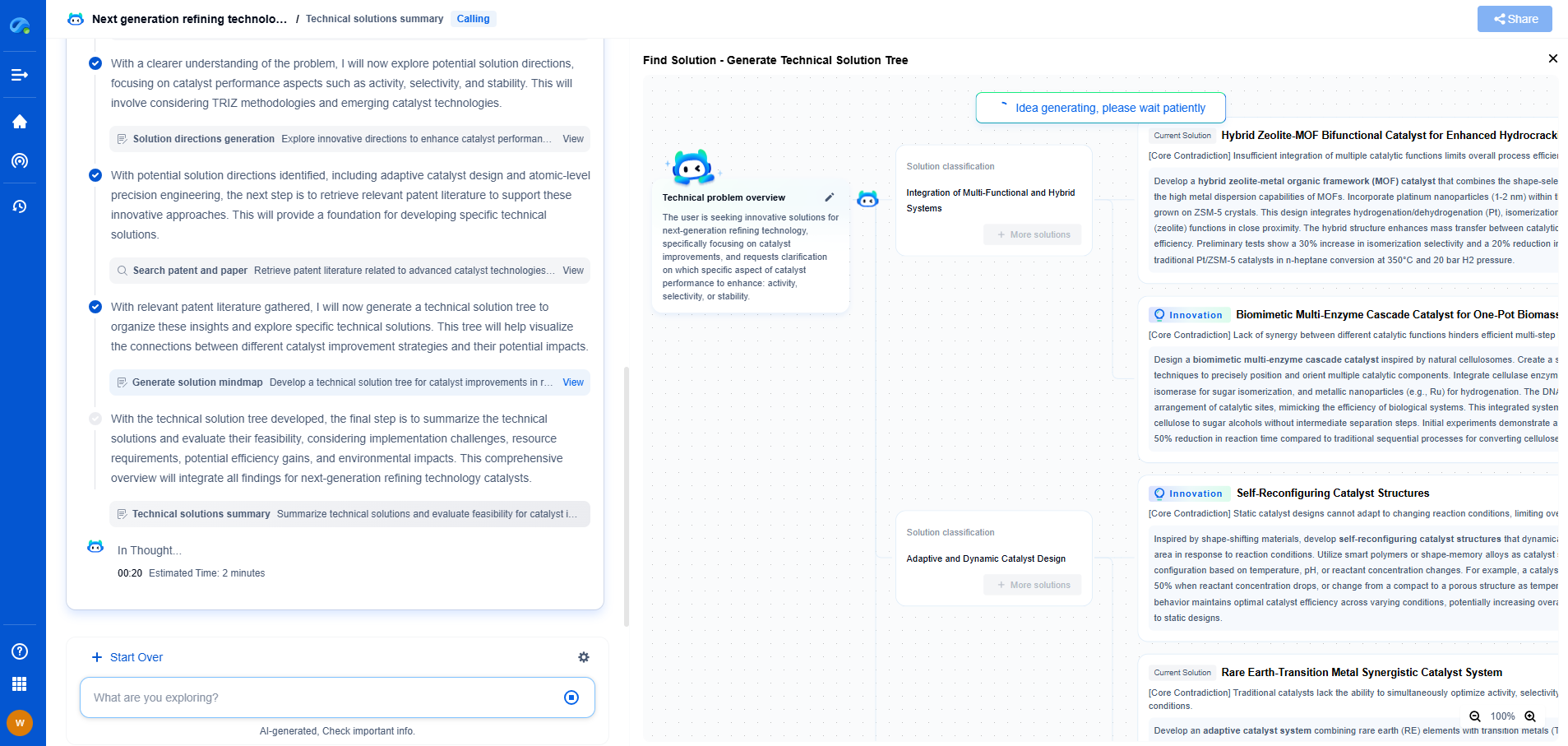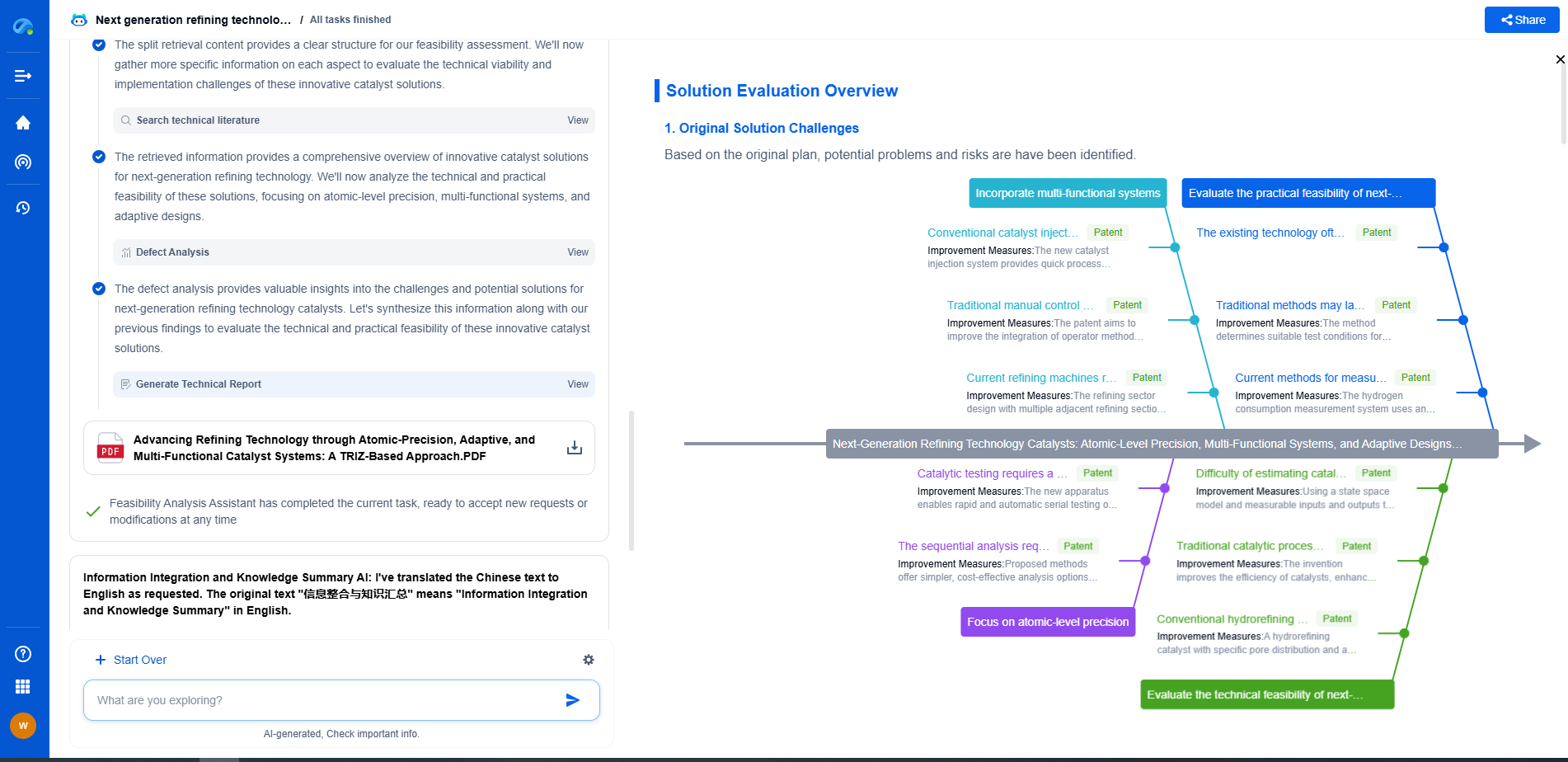When and why to offload computation to the cloud
JUL 4, 2025 |
Understanding Cloud Computing
Before diving into the specifics of offloading computation, it's crucial to understand what cloud computing entails. Essentially, cloud computing allows individuals and companies to use computing resources over the internet rather than maintaining physical hardware. This includes servers, storage, databases, networking, software, and analytics.
When to Offload Computation to the Cloud
1. **Scalability Needs**: One of the primary reasons companies move to the cloud is due to scalability. As a business grows, so do its computational requirements. Cloud platforms offer the flexibility to scale resources up or down based on current needs. This means you pay only for what you use, making it ideal for businesses with fluctuating demands.
2. **Cost Efficiency**: Maintaining an in-house IT infrastructure can be costly. Beyond the initial investment in hardware, there are ongoing maintenance, cooling, and staffing costs. By offloading computation to the cloud, businesses can convert these capital expenses into operational expenses, often resulting in significant savings.
3. **Speed and Agility**: In today's fast-paced environment, speed is of the essence. Cloud computing offers faster deployment of resources, allowing businesses to experiment and innovate without lengthy hardware procurement processes. This agility is crucial for staying competitive and quickly responding to market changes.
4. **Disaster Recovery and Backup**: Data loss can be catastrophic. Cloud service providers often offer robust backup solutions and disaster recovery options. By offloading computation to the cloud, businesses can ensure that their data is safe and easily recoverable in the event of a mishap.
5. **Collaboration and Remote Work**: As more workplaces adopt remote and flexible working arrangements, having data and applications accessible from anywhere becomes essential. Cloud computing supports this by allowing employees to collaborate seamlessly, regardless of their physical location.
Why Offload Computation to the Cloud
1. **Access to Advanced Technologies**: Cloud providers offer access to cutting-edge technologies like artificial intelligence, machine learning, and big data analytics. For businesses looking to harness these technologies without significant upfront investment, the cloud provides an affordable and accessible solution.
2. **Improved Security**: Security is often a top concern for businesses considering the cloud. Reputable cloud providers invest heavily in security measures, ensuring that data is protected against breaches. This is often more robust than what a typical in-house IT team can offer.
3. **Focus on Core Business Functions**: By offloading IT and computation concerns to the cloud, businesses can refocus their efforts on core business functions. This shift allows companies to dedicate more resources to innovation and growth rather than IT maintenance.
4. **Environmental Benefits**: Cloud computing can lead to a reduced carbon footprint. By optimizing resource usage and reducing the need for physical hardware, businesses can contribute to a more sustainable future.
Potential Challenges and Considerations
While the benefits of offloading computation to the cloud are numerous, it’s important to be aware of potential challenges. These can include data sovereignty concerns, potential downtime, and vendor lock-in. Businesses should conduct thorough research and choose reputable cloud providers to mitigate these risks.
Conclusion
Offloading computation to the cloud provides numerous benefits, from cost savings and scalability to improved collaboration and security. However, it's crucial to assess your company’s specific needs and choose the right cloud solution that aligns with your business objectives. As the technology continues to evolve, embracing cloud computing can position businesses to thrive in a digital-first world.
Accelerate Breakthroughs in Computing Systems with Patsnap Eureka
From evolving chip architectures to next-gen memory hierarchies, today’s computing innovation demands faster decisions, deeper insights, and agile R&D workflows. Whether you’re designing low-power edge devices, optimizing I/O throughput, or evaluating new compute models like quantum or neuromorphic systems, staying ahead of the curve requires more than technical know-how—it requires intelligent tools.
Patsnap Eureka, our intelligent AI assistant built for R&D professionals in high-tech sectors, empowers you with real-time expert-level analysis, technology roadmap exploration, and strategic mapping of core patents—all within a seamless, user-friendly interface.
Whether you’re innovating around secure boot flows, edge AI deployment, or heterogeneous compute frameworks, Eureka helps your team ideate faster, validate smarter, and protect innovation sooner.
🚀 Explore how Eureka can boost your computing systems R&D. Request a personalized demo today and see how AI is redefining how innovation happens in advanced computing.
- R&D
- Intellectual Property
- Life Sciences
- Materials
- Tech Scout
- Unparalleled Data Quality
- Higher Quality Content
- 60% Fewer Hallucinations
Browse by: Latest US Patents, China's latest patents, Technical Efficacy Thesaurus, Application Domain, Technology Topic, Popular Technical Reports.
© 2025 PatSnap. All rights reserved.Legal|Privacy policy|Modern Slavery Act Transparency Statement|Sitemap|About US| Contact US: help@patsnap.com

